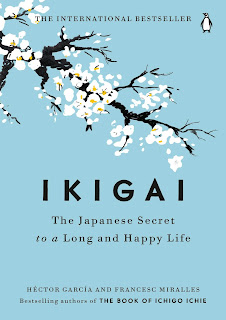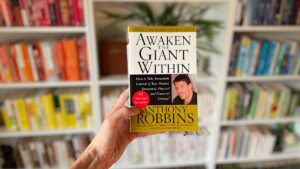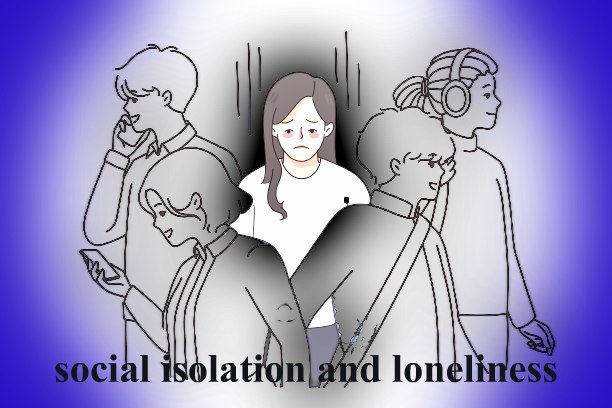Ikigai Summary
Tag Line
Researchers have identified that their diet, simple outdoor lives, and their subtropical climate as three reasons for their longevity. However, it is Ikigai that shapes their lives. Iki meaning “to live” and gai meaning “reason.” Therefore, your Ikigai is your reason to live. Each individual’s ikigai is personal to them and specific to their lives, values, and beliefs. It reflects the inner self of an individual and creates a mental state in which the individual feels at ease. Héctor García and Francesc Miralles outline how you can find your Ikigai.
About Héctor García
Héctor García is a citizen of Japan, where he has lived for over a decade. He is the author of several books about Japanese culture, including two worldwide bestsellers, A Geek in Japan and Ikigai. A former software engineer, Héctor worked at CERN in Switzerland before moving to Japan. He has now been living in Tokyo for over 16 years.
About Francesc Miralles
Francesc Miralles is the award-winning and internationally bestselling author of books about how to live well. Alongside Héctor García, he was welcomed to Okinawa in Japan. There they had the chance to interview more than a hundred villagers about their philosophy for a long and happy life.
“Essentials to happiness in this life are something to do, something to love, and something to hope for.” –
HÉCTOR GARCÍA
Find and Follow Your Ikigai
“Everything can be taken from a man but one thing: the last of the human freedoms—to choose one’s attitude in any given set of circumstances, to choose one’s own way.”
– HÉCTOR GARCÍA
In Okinawa, ikigai is a reason to enjoy life. Okinawans view ikigai as a way to describe the ‘why’ behind their daily life. They have a reason for getting up in the morning, which means they have something to live for. Ikigai is the philosophy that blissfully keeps them busy until the end of their days.
Other cultures follow a path that society has created for us. We live by someone else’s standards and forget our desires. Hence, we rarely find our purpose and passions in life.
To find this reason or purpose, ask yourself these four questions:
• What do I love?
• What am I good at?
• What does the world need from me?
• What can I get paid for?
As we all know, your happiness relies on much more than only having a career and getting a paycheck. Likewise, only doing things you love or doing things you are good at is not enough to sustain you financially. Hence, your ikigai lies at the center of four interconnecting circles. Each of these elements helps contribute to your happiness; all four are crucial to your “reason for being.”
Finding and embracing your ikigai is one of the first steps to a long, happy life. Without it, you’ll wander through life, holding onto material objects, memories from the past, or other people. You’ll jump from one goal to another, from one daily task to the next.
Take it Slow
“There is nothing wrong with enjoying life’s pleasures as long as they do not take control of your life as you enjoy them”
– HÉCTOR GARCÍA
Okinawa is known for its slow-paced life. People here are passionate about everything they do; however insignificant it might seem. They have an ikigai, but they don’t always take it too seriously. They are relaxed and enjoy all that they do. They celebrate all the time, even the little joys in life. Subsequently, music and dance are essential parts of daily life.
Technology has helped us save time, but this free time is often filled with other tasks. Subsequently, modern society is faster than ever. However, it doesn’t have to be this way. A slower-paced life means making time to enjoy your mornings instead of rushing to work in a frenzy. It means taking time to enjoy whatever you’re doing, to appreciate the outdoors, and to focus on whomever you’re talking to.
Slowing down is a conscious choice and not always an easy one. However, it leads to a greater appreciation for life and a greater level of happiness.
Don’t Fill Your Stomach
Okinawan Diet
The mortality rate from cardiovascular disease in Okinawa is the lowest in Japan. The Okinawan diet certainly has a lot to do with this. The “Okinawa diet” includes at least five servings of fruits and vegetables each day, of at least seven types. Typical items include tofu, miso, bitter melon, seaweed, soy sprouts, peppers, and green tea. They rarely eat sugar and, if they do, it’s cane sugar. The average daily intake of an Okinawan is about 1,900 calories. This is significantly less than the average number of calories consumed by a typical American. They also eat almost half as much salt as the rest of Japan: 7 grams per day, compared to an average of 12.
Hara Hachi
The Okinawans also practice a Confucian teaching called Hara Hachi. Hara Hachi instructs people to eat only until they are 80% full. There is a significant calorie gap between when an American says, ‘I’m full’ and an Okinawan says, ‘I’m no longer hungry.’ This cultural practice of calorie restriction and mindful eating supports Okinawans having the highest percentage of centenarians in the world. We can also make changes to our eating patterns and put Hara Hachi into practice for improved health or weight loss.
Ways to get started include:
• Eating slowly – Eating faster results in eating more. If we slow down, we will be mindful and allow our body to respond to cues, telling us we are no longer hungry.
• Focusing on food – If you’re going to eat, just eat. This way you’ll eat more slowly, consume less, and savor the food more.
• Use small vessels – If you choose to eat on smaller plates and use tall, narrow glasses, your brain believes it’s had more portions. You’re likely to eat significantly less without even thinking about it. Don’t believe me? Look at the size of your plate next time you’re at an all-you-can-eat buffet. You’ll see they’re a lot smaller than the ones in your kitchen cabinet.
Surround Yourself With Good Friends
In small neighborhoods across Okinawa, friends “meet for a common purpose.” These meetings are sometimes daily, and sometimes a couple of days a week. They use this time to gossip, experience life, and to share advice. They call these groups their Moai. The term originated hundreds of years ago as a means for a village’s financial support system.
Originally, Moais were formed to pool the resources of an entire village for projects or public works. Today, the idea has expanded to become more of a social support network, a cultural tradition for built-in companionship. Traditionally, groups of about five young children were paired together, and they committed for life. As their second family, they would regularly meet with their Moai for work, play, and pool resources. Some Moais have lasted over 90 years.
Research shows that friends can affect your health even more than family. People with the most friends tend to outlive those with the fewest by 22 percent. Keep in mind this means real friends. The authors point out that Facebook friends and Twitter followers do not count.
The key isn’t to try to have several friends. Superficial and distant relationships will only lead to feelings of insecurity and loneliness. These emotions increase your risk of illness and death as much as obesity, alcoholism, and smoking. The key is to have three or four good friends that care for you the same way you care for them. The easiest way to develop close friendships is thinking about what you can do to help the people closest to you be happier.
Smile
The Okinawans are very cheerful, and there is always a smile on their face. They believe it’s good to recognize the things that aren’t so great. Still, we should never forget what a privilege it is to be in the here and now in a world so full of possibilities. One of the secrets of their long life is smiling and having a good time. This cheerful attitude is not only relaxing; it also helps them to make new friends. There are no bars and only a few restaurants in Ogimi. However, those who live in Ogimi enjoy a rich social life that revolves around community centers. The truth is it takes 46 muscles to frown and only 17 to smile.
Smiling does more than tell other people that you’re happy. Smiling lowers your heart rate and reduces blood pressure while relaxing your body. A study from University College London found that happy, cheerful people are 35% more likely to live longer.
Smiling can help you make more money and move up a career ladder. It makes you appear confident, professional, and self-assured. Those who smile at their colleagues and customers are more likely to get promoted, be approached with business ideas, or get a raise.
People who smile seem more trustworthy and are rated higher in generosity and extroversion.
Reconnect With Nature
Gardening in Okinawa
In Okinawa, virtually everyone keeps a vegetable garden, and most of them also have fields of tea, mangoes, and shikuwasa. They say that anybody who wants to grow old needs an ikigai, or reason for living. Gardening gives you something to get up for every day.
Getting together at the local market and sharing the produce from their garden is an important social activity. This activity helps people feel connected and grounded. A sense of connection to other people is essential, and so is their connection with nature. One Harvard University study showed that people surrounded by lush greenery lived longer, with a lower chance of developing cancer or respiratory illnesses. Over 100 studies have shown that being in nature, living near nature, or even viewing nature can positively impact our lives. In particular, viewing nature appears inherently rewarding, producing a cascade of positive emotions and calming our nervous systems. This, in turn, helps us cultivate greater openness, creativity, connection, generosity, and resilience.
Nature and Cities
With more than half of the world’s population living in cities, we have lost touch with nature. The rat race sucks up our time and energy, leaving us feeling stressed, anxious, or like we have lost meaning. Our lives revolve around paying bills, buying things we don’t actually need, drinking to feel something, and staring at a computer screen.
Even though we don’t need to hunt for food anymore, there are straightforward ways to reconnect with nature. For example, grow a plant in your house, play with your pet, watch the sunrise, go on a trek, or sleep under the stars. Even if you can’t or don’t want to leave your comfortable urban life, get out there, and enjoy the wilderness. If you do that regularly, you will start to get drawn towards nature.
Give Thanks
The people of Okinawa give thanks for the smallest of details. They give thanks to their ancestors, nature for providing the air and food, and their family and friends. They even have a special Naha (tug of war) festival to give thanks for a good harvest.
Gratitude has consistently been associated with positive outcomes. One study conducted by the University of Berkeley, California, divided participants into three groups and asked them to maintain a journal for ten weeks. One group was asked to write a list of 10 circumstances they were grateful for over the past week. The second group was asked to list ten minor annoyances in the past week. The third group was asked to write about ten factors that impacted their lives in the past week, but with no further direction. At the end of 10 weeks, people from the first group reported feeling 25% happier than the other groups.
Apart from increasing your happiness levels, gratitude also improves your physical health. It lowers stress levels. Stress is associated with heart attacks and other chronic conditions but can be reduced by adopting gratitude and encouraging optimism. Optimism increases immunity-boosting cells.
You can start being grateful by keeping a gratitude journal. Every day, pick three to five things that you’re thankful for and write them down. You could be grateful for your friends, your family, your material goods, or your health. When we are genuinely thankful, and we feel it deep inside us, we are grateful.
Exercise
In Okinawa, people over eighty and ninety years old are still highly active. They don’t stay at home looking out the window or waste time reading the newspaper. They walk a lot, do karaoke with their neighbors, and get up early in the morning. They don’t go to the gym or exercise intensely, but they rarely stop moving in the course of their daily routines. With regular access to sunshine and exercise, they are healthier, with stronger bones, higher vitamin levels, and in a brighter mood.
The real reason we don’t exercise is our desire to avoid any experience of discomfort. The truth is that, to stay healthy, you don’t need to go to the gym for an hour daily or run marathons. As Japanese centenarians show us, all you need is to add movement to your day. Practicing any Eastern discipline, like Yoga, Qigong, and Tai Chi is an excellent way to seek harmony between your body and mind. In doing so, you can face the world with strength, joy, and serenity. These gentle exercises offer extraordinary health benefits and are suitable for anyone who struggles to stay fit.
Live in the Moment
Flow State in Okinawa
Japanese professionals are renowned for their perseverance and absorption in their tasks, with thorough attention to detail. We see this in several contexts, from the old people of Okinawa working on their garden to the college students. They are always in their flow. Flow is the state in which people are so involved in an activity that nothing else seems to matter. The experience itself becomes highly enjoyable.
Imagine yourself climbing a tall mountain. High above the ground, you move deliberately. You are aware of every placement of your foot. There is no room for error; one lapse in attention can cost you your life. You focus intensely; nothing exists but you and this mountain. Time seems to slow down, and your mind shifts into a new space. A sense of vibrancy of being ‘alive,’ connectedness and peace infuse your being. You’re in the zone. This is the moment. There is no past, no future, just now. You are in your flow.
Flow State During Mundane Tasks
You don’t need a mountain to enter into a flow state. Suppose you often find yourself losing focus while working on essential tasks. In that case, there are several strategies you can employ to increase your chances of achieving flow. For example, you can focus all your attention on the present moment, avoid multitasking, or unplug from social media.
However, the most effective way of achieving flow is by choosing a task that’s difficult, but not too difficult. Every task, sport, or job has a set of rules, and we need a set of skills to follow them. If the rules for completing a task or achieving a purpose are too basic relative to our skillset, we will likely get bored. Activities like this lead to apathy. If we assign ourselves a task that is too difficult, we won’t have the skills to complete it and almost certainly give up. The ideal is to find a middle ground. You should identify tasks that align with your abilities but are still challenging. We want to encounter challenges because we enjoy the feeling of accomplishment from pushing ourselves.
Bill Gates
We can also use this strategy to achieve flow in doing the most mundane tasks like washing dishes or doing paperwork. Bill Gates washes the dishes every night. He says he enjoys it as it helps him relax and clear his mind. Crucially, he tries to do it a little better each day. Bill follows an established order or set of rules he’s made for himself: plates first, forks second, and so on. It’s one of his daily moments of microflow. We, too, can enjoy these mundane tasks by attempting to do them better than we did the last time.
Flow is like a muscle: the more you train it, the more you will flow. Hence, the closer you will be to your Ikigai.
Never Retire
In the Okinawan language, there isn’t a word for retirement. Older Okinawans can readily articulate the reason why they get up in the morning. They live intentional, purposeful lives. They feel needed, they matter, and they contribute. Subsequently, they live longer than most. The idea is to keep your mind and body active to fill yourself with purpose and ikigai daily. We think of retirement as an ultimate destination of well-earned rest from the battlefield of a career. We think of retirement as a golden age of holidays and gold. However, retirement kills your ikigai. We need to stop spending so much time worrying about making more money and our eventual retirement. Instead, we should be focusing our efforts on building a fantastic life while we still have the time. So, never retire. Keep learning, keep changing, and keep growing.









